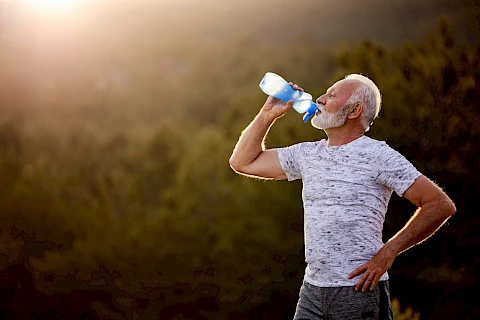
As people age, their bodies undergo changes that can affect their health and well-being. One critical issue is the increased risk of overheating, to which seniors are more susceptible than younger adults. Understanding the reasons behind this increased sensitivity can help caregivers provide better care. Overheating can lead to serious health problems, so caregivers must recognize the signs and take preventative measures.
The Science Behind Overheating in Seniors
The human body has a complex temperature regulation system that keeps us cool when it's hot. This system works through sweating and adjusting blood flow to the skin. As we age, however, these mechanisms can become less efficient. The body's ability to sense temperature changes and respond appropriately declines. This makes seniors more prone to overheating.
Changes in the Skin
One reason seniors overheat is due to changes in their skin. As we get older, our skin becomes thinner and loses some of its ability to protect against moisture loss, sun, and heat. The number of sweat glands decreases with age, reducing the body's ability to cool down through sweating. Thinner skin absorbs heat more quickly, raising body temperature faster than in younger adults.
Common Medical Conditions
Chronic illnesses can also play a significant role in increasing heat sensitivity among seniors. Diabetes and cardiovascular diseases affect blood flow and the body's ability to regulate temperature. Many seniors take medications that can interfere with the body's heat regulation. For example, diuretics and antihistamines can increase dehydration, making overheating more likely.
Reduced Awareness of Overheating
Seniors may not always realize they're overheating, which can be dangerous. Senior adults often don't feel as thirsty as younger people, so they might not drink enough fluids to stay hydrated. Conditions like dementia can make it difficult for seniors to recognize the symptoms of overheating, such as sweating or feeling very hot. Caregivers need to be vigilant in monitoring the seniors they care for. This includes checking for signs of overheating like flushed skin, rapid heartbeat, and excessive sweating.
Preventative Measures for Caregivers
There are several steps caregivers can take to help keep seniors cool and prevent overheating:
- Keep them hydrated: Encourage seniors to drink water regularly, even if they don't feel thirsty. Offer fluids like water, herbal tea, or fruit juice throughout the day.
- Monitor for signs of overheating: Look out for symptoms like confusion, dizziness, nausea, and headache. These can be early indicators that a senior is overheating.
- Create a safe environment: Ensure the living environment is cool and well-ventilated. Use fans and air conditioning during hot weather. Avoid outdoor activities during the hottest parts of the day, typically from 10 a.m. to 4 p.m.
- Dress appropriately: Encourage wearing lightweight, loose-fitting clothing in light colors. Hats and sunglasses can also help protect against the sun's rays.
Stay Safe This Summer With Senior Helpers
Caregivers need to know why seniors are more prone to overheating. By recognizing the signs and taking preventative measures, caregivers can help keep seniors safe and healthy during hot weather. Always be aware of the unique needs of older adults and your role in their well-being.
Do you or a senior loved one need assistance with day-to-day activities this summer? Those who live in Florence, Edgewood, Union, or anywhere in Northern Kentucky can contact us at Senior Helpers Northern Kentucky for expert care and support. Our care services extend beyond the comfort of home; we empower seniors to live engaged, active, and independent lives while out and about in their communities or in the sanctity of their own gardens. We look forward to hearing from you!